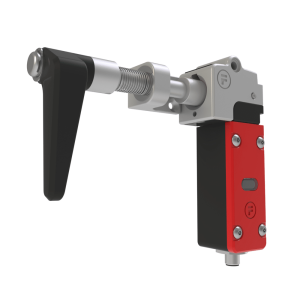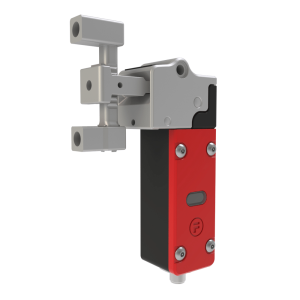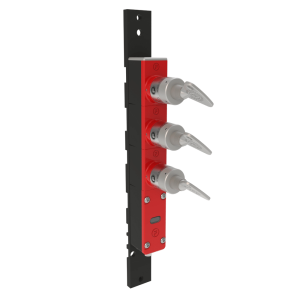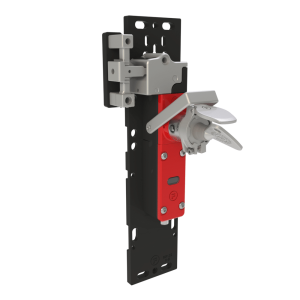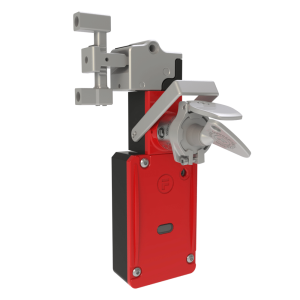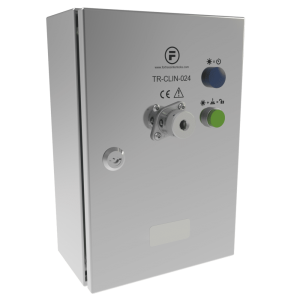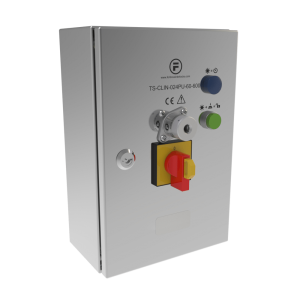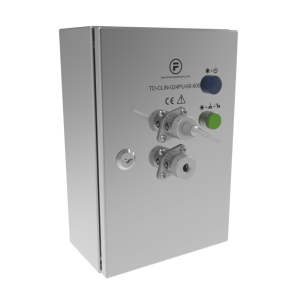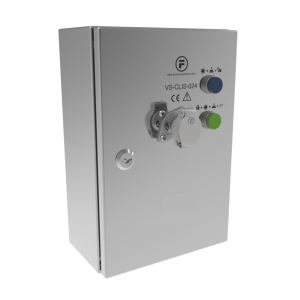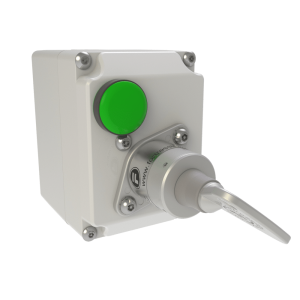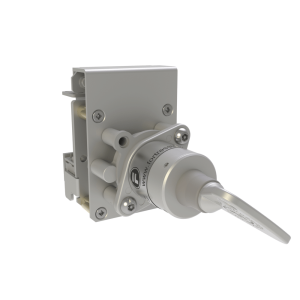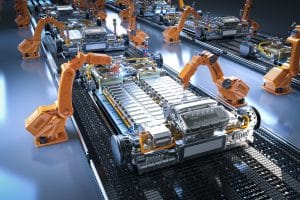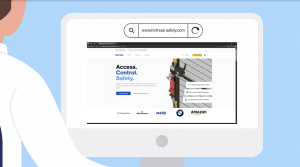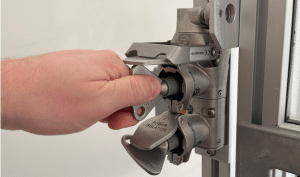Baumaterialien
Bei der Herstellung von Baumaterialien wie Glas, Beton und Ton birgt der Umgang mit schweren Materialien und Hochtemperaturprozessen erhebliche Gefahren. Zu den wichtigsten Herausforderungen gehören die Vermeidung von Verletzungen durch bewegliche Teile und die Verringerung von Risiken im Zusammenhang mit Hochdrucksystemen, Staub und Dämpfen.
Fortress Safety hilft bei der Bewältigung dieser Herausforderungen mit robusten Lösungen, die für anspruchsvolle Umgebungen entwickelt wurden. Unsere Produkte eignen sich gut für anspruchsvolle Bedingungen und Szenarien mit eingeschränkter Sicht und halten einem hohen Maß an Staub und Schmutz stand. Diese Langlebigkeit trägt dazu bei, Ausfälle von Bauteilen zu reduzieren, Bediener zu schützen und Maschinen zu minimieren Ausfallzeit.
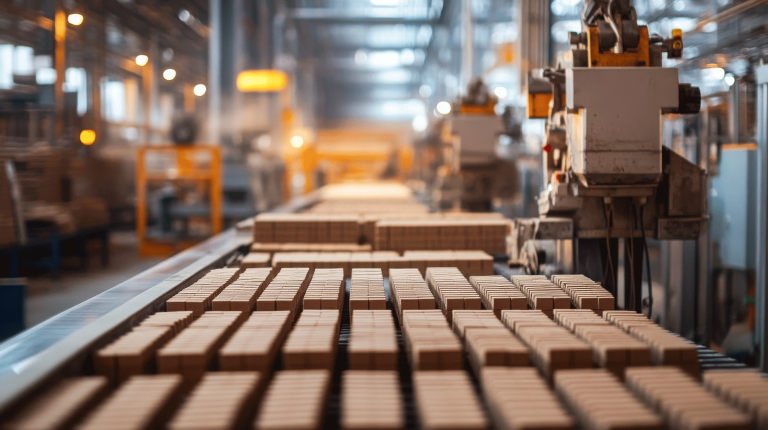
| Erweiterte Sicherheit Eigenschaften |
verschlüsselt Aktoren, Sicherheitsüberwachung und Zuhaltung , um Ausfälle zu verhindern, die Sicherheit zu erhöhen und die Einhaltung von Normen zu gewährleisten.
Staub- und Schmutzresistenz
Lösungen mit Schutzart IP67 und IP69 für Umgebungen, in denen Staub- und Schmutzrückstände Blockierungen verursachen oder mechanische Teile beschädigen können.
unerwarteter Start-Vorbeugung
Es stehen mehrere Optionen zur Verfügung, um den Bedienern die Kontrolle zu geben und zu verhindern, dass eine Maschine zurückgesetzt wird, während sie sich innerhalb der Gesicherter Raum befinden.
Vollständig konfigurierbare Produkte
Entwerfen Sie maßgeschneiderte Sicherheitslösungen, die den spezifischen Anforderungen jeder Anwendung gerecht werden.
Minimierung von Ausfallzeit und Ersatzbeschaffung
Robuste Produkte, die jahrzehntelang halten, selbst in den schwierigsten Anwendungen und rauesten Umgebungen.
| Globale Reichweite |
Mit Niederlassungen auf der ganzen Welt und einem großen Netzwerk von vertrauenswürdigen Partnern bietet Fortress globale Unterstützung.
Erweiterte Sicherheit Eigenschaften
verschlüsselt Aktoren, Sicherheitsüberwachung und Zuhaltung , um Ausfälle zu verhindern, die Sicherheit zu erhöhen und die Einhaltung von Normen zu gewährleisten.
Staub- und Schmutzresistenz
Lösungen mit Schutzart IP67 und IP69 für Umgebungen, in denen Staub- und Schmutzrückstände Blockierungen verursachen oder mechanische Teile beschädigen können.
unerwarteter Start-Vorbeugung
Es stehen mehrere Optionen zur Verfügung, um den Bedienern die Kontrolle zu geben und zu verhindern, dass eine Maschine zurückgesetzt wird, während sie sich innerhalb der Gesicherter Raum befinden.
Vollständig konfigurierbare Produkte
Entwerfen Sie maßgeschneiderte Sicherheitslösungen, die den spezifischen Anforderungen jeder Anwendung gerecht werden.
Minimierung von Ausfallzeit und Ersatzbeschaffung
Robuste Produkte, die jahrzehntelang halten, selbst in den schwierigsten Anwendungen und rauesten Umgebungen.
Globale Reichweite
Mit Niederlassungen auf der ganzen Welt und einem großen Netzwerk von vertrauenswürdigen Partnern bietet Fortress globale Unterstützung.
Beginnen Sie mit Ihrer individuellen Lösung
Empfohlener Bereich Produkt
amGardpro
Konfigurierbare Verriegelungen und Steuerkapseln für Schwerlastanwendungen, zertifiziert für den Einsatz bis PLe/Cat. 4. Drucktastensteuerungen, Schlüsseltransfer Optionen und Netzwerkkonnektivität können in einem einzigen Einheit kombiniert werden.
Hochgradig konfigurierbar
Reduzieren Sie Ersatzbeschaffungen und Ausfallzeit
Alle Bedienelemente an einem Ort
Netzwerkkonnektivität
Empfohlener Bereich Produkt
mGard
Mechanische Schlüsseltransfer Verriegelungen zur Erzwingung bestimmter Tastenfolgen, insbesondere bei Anwendungen mit mehreren Energiequellen. Kostengünstig, einfach zu installieren und zu warten und ideal für Bereiche, die mit Kabeln schwer zu erreichen sind.
Sequenzen erzwingen
Kontrolle gefährlicher Energie
Maschine minimieren Ausfallzeit
Keine Verkabelung erforderlich
Nachrichten und Einblicke
- Veranstaltung
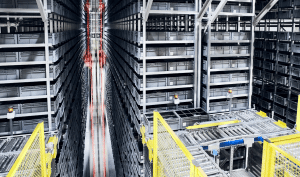
Andere Industrien

Sie wissen nicht, wo Sie anfangen sollen? Wir sind hier, um zu helfen
Unser engagiertes Expertenteam hilft Ihnen, die richtige Lösung für Sie zu finden. Sie können Ihre Branche und Ihre spezifischen Anwendungsbedürfnisse analysieren und Ihnen Empfehlungen geben, wie Ihre Einrichtung von Fortress profitieren kann.
